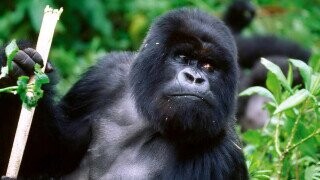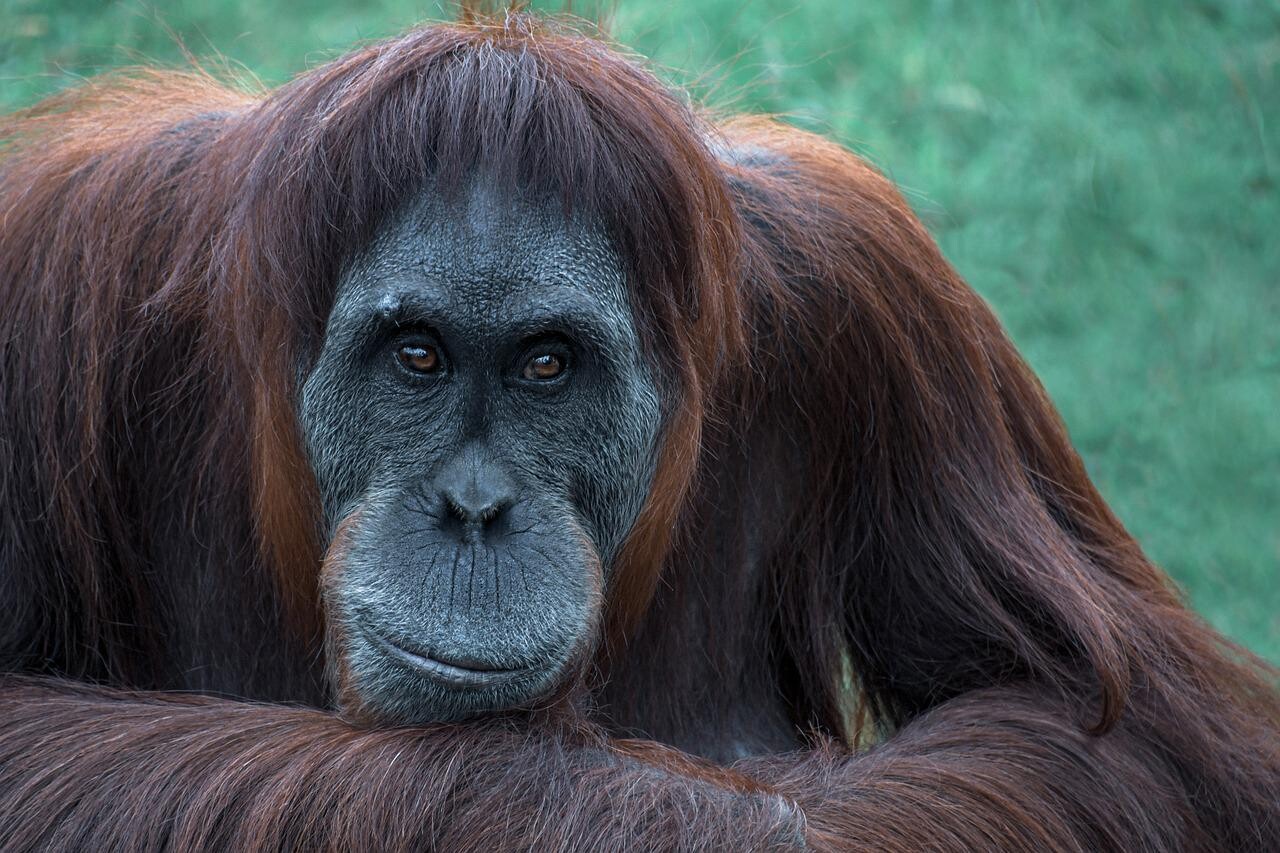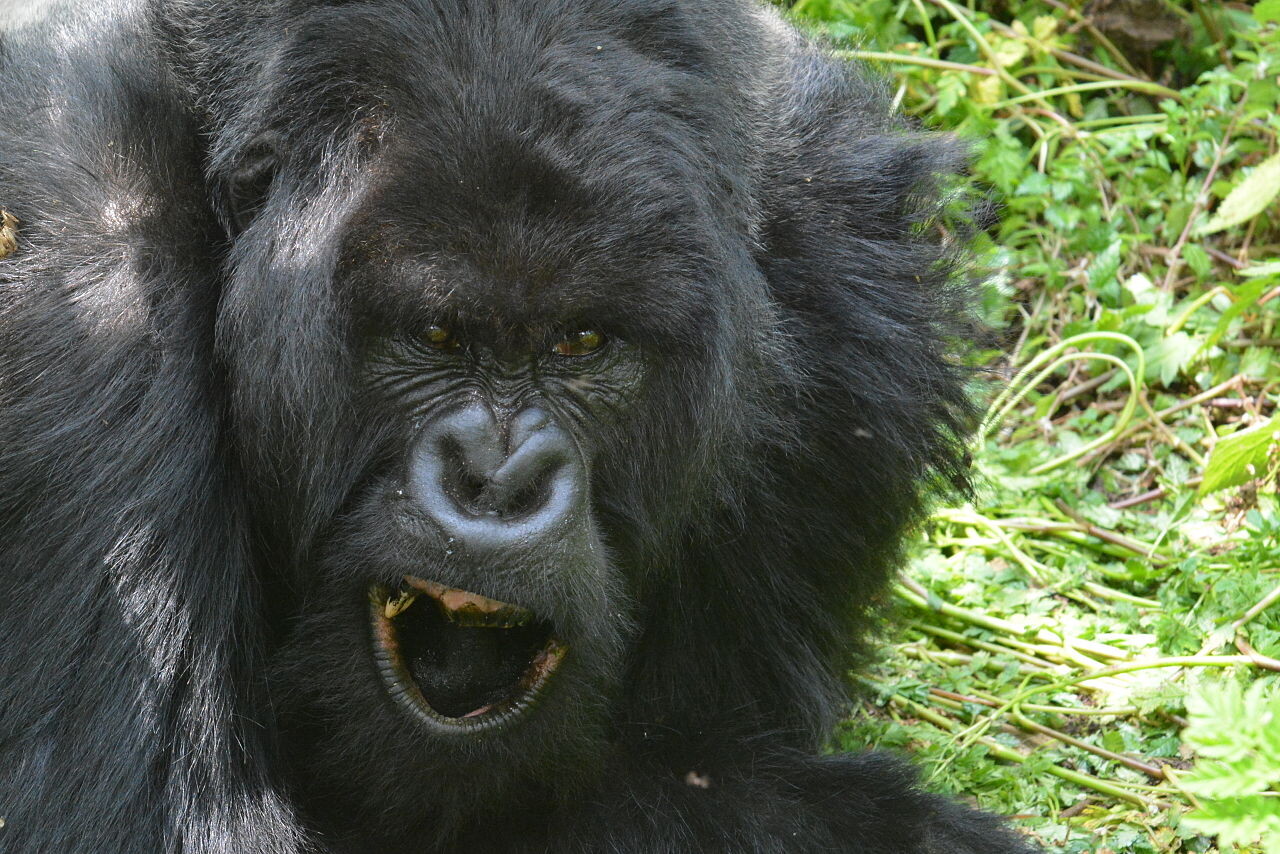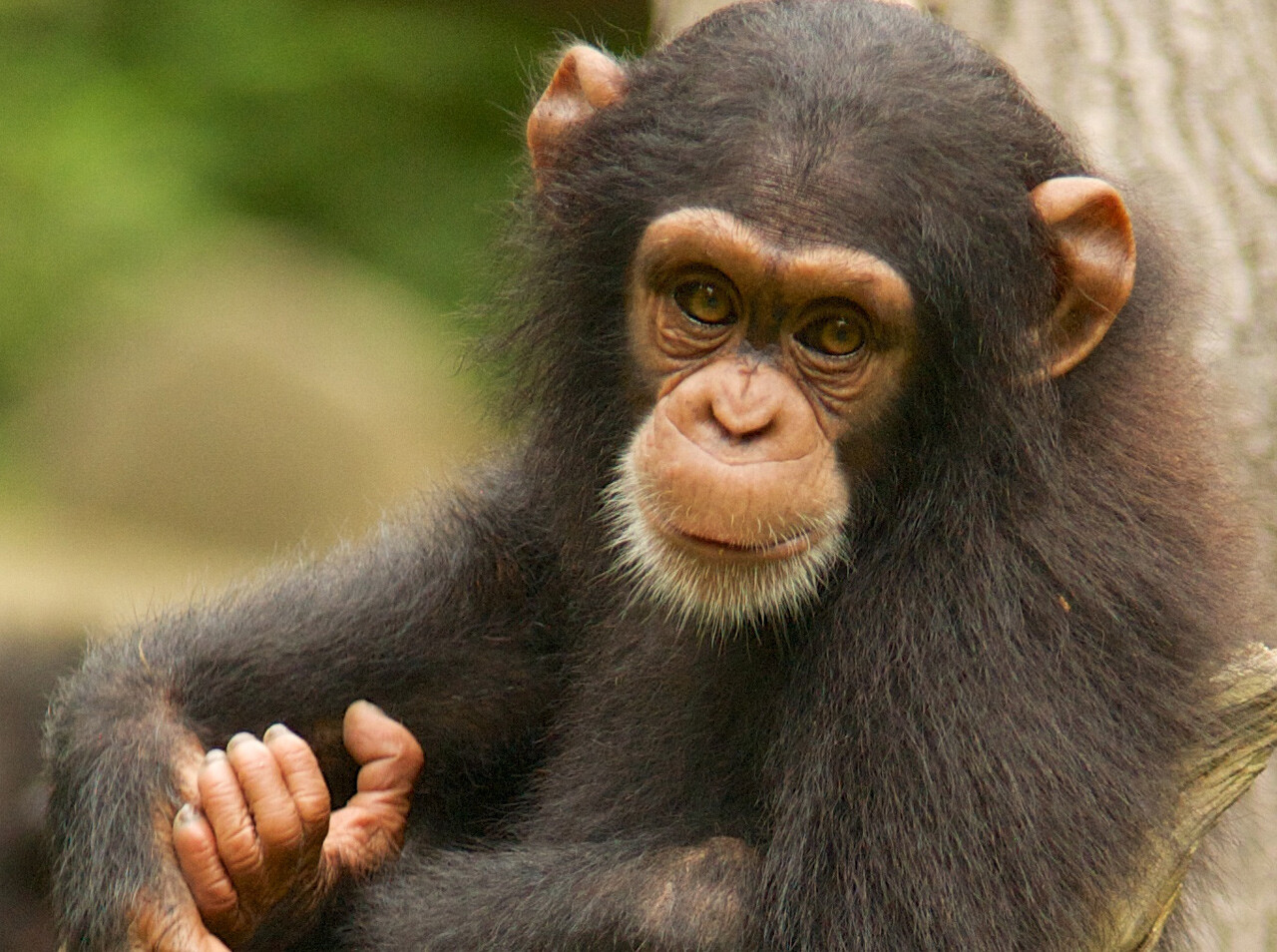5 Bananas Things Apes Do In The Wild

The image of a violent, rampaging ape has been in the cultural consciousness for at least as long as 1933's King Kong. Hell, they even made a video game about a violent ape and named it Rampage. It makes sense to fear apes: they're humanity's wildly unpredictable cousins. Our only advantage is intelligence. Tigers can kill us, but Planet Of The Tigers is a children's cartoon. Ape violence makes us wonder what horrible instincts are lurking deep within our own natures. That's why Planet Of The Apes is two blockbuster series plus an interlude where Mark Walhberg makes out with an ape. But it turns out reality is even more horrifying (and hornier) than fiction:
Orangutans Can Use Hitmen
Ever been jealous of an ex? Ever wanted to take someone's food? Ever wanted to just beat someone up for no reason? Some orangutans experience all of those feelings, apparently.
Don't Miss
A female orangutan used a mating partner to help beat another female to death. They were even having sex when it happened. The primate version of a Law & Order: SVU couple actually interrupted coitus, beat the mess out of this other poor female, and then … the article doesn't say, but you have to assume they had sex again? Beating someone up is supposed to be a huge adrenaline boost (I've heard, anyway -- legal won't let me go out on the streets and independently verify). Plus, they were already having sex. All that adrenaline's gotta go somewhere, right? The article does hint that the male might have agreed to help with the attack in exchange for "more mating time," as those stuffy scientists call the noble art of boning. So I'm going to assume they knobbed each other, knuckle-sandwiched the other poor female, then went right on back to beasting with two backs-ing.

Anyway, this story establishes three things we're going to be talking about a lot here: 1) Great Apes are super weird about sex 2) many Great Apes are insanely violent 3) and deforestation and climate change are leading to increased violence and resource competition. That's right, researchers think that human activity—like illegal logging and forest fires—has caused Great Apes across the world to quite literally be at each other's throats. Yep, that's going to come up a lot. Remember, this is America's only comedy site. Any time you get too sad about climate, though, just remember they made a whole movie where Ronald Reagan shares a bed with a chimpanzee.
Gorillas Are Infanticial, Harem-Having Maniacs
One thing you'll notice about Great Apes is they don't really adhere to the Leave It To Beaver family structure of 2 parents, 2.5 kids, and sins of the flesh never spoken of. Let's take gorillas. They typically live in small social groups: one dominant male (called a silverback) rules over maybe 2-3 immature males and then a 3-4 female harem with their babies. And all those babies are the silverback's, make no mistake.

Male gorillas sort of run into the same problem the Sith have with the Rule of Two: males don't stay immature their whole lives, but they can't get it on with any of the females around them. Gorillas don't really go for the old Habsburg "keep it in the family" code, meaning two things: 1) Gorillas are smarter than both Star Wars villains and most of the monarchs in European history, and 2) eventually, males want to form their own groups as silverbacks.
So: how can a fresh-faced young fella become a grizzled family-leading silverback? Well, if he's lucky, a silverback has just died. Take that guy's family! But if he happens upon a group that already has an established silverback, his only recourse is to challenge that dude to a fight.
The problem with a male attaching to a new group is that a female might already have a baby by a different silverback, so she can't get pregnant. But don't worry! There's a simple, easy, horrifying solution: kill the baby so that the female can mate sooner. Oh, I'm sorry, is that sentence unthinkable to you, new Stepdad reading this article? Well, gorillas do this a lot. There was even some speculation from the Diane Fossey Gorilla Fund International that one female traveled alone with her infant for seven months after her silverback died, possibly out of fear of infanticide. Think about that: a female gorilla—a new parent and widow, for God's sake—traveled alone for seven months so that no wandering old dudes would kill her baby. How many Cormac McCarthy novels are in that sentence? Three? Five?
Wait It Gets Worse, Chimps Are Infanticial Maniacs
If you think gorillas are horrifying, wait until you hear about an ape more closely genetically related to humans. Chimpanzees live in large social groups, around 20-30. There are complicated power dynamics within both the males and females of these groups, but there is generally an alpha male and an alpha female. Paternity is often confused, which usually isn't a big deal—infants are raised within the group. That's cool! It takes a village and all that. Come on, though. You know there's a "but" coming.
If chimps believe an infant was conceived outside the social group, or if one male gets a little jealous that his crush's infant looks a little too much like Frank or whomever, things get … infanticidy. Like, 2-3 week old infants getting killed by a group of adult males, sometimes being used as a club to beat back the mother, and usually partially cannibalized, too.

Watching those cute chimps swinging from their ropes and chewing their leaves, knowing full well they may have a desire for the taste of chimpanzee flesh burning within their little chimp hearts. Look into the eyes of an animal that shares more than 98% of its DNA with you and wonder if they say prayers of thanks every night that they made it out of childhood.
It's not just aggro-male toxic masculine BS, either. Females will (rarely) get in on the action, too. Though increased female aggression also seems linked to shrinking habitats and competition for resources. There's our old friend deforestation cropping up again! Or the opposite of cropping up, I guess. More like popping by with all the cheer and happiness of Newman from Seinfeld delivering a package from the Unabomber.
Chimps Can Wage War
Don't worry, though; chimps don't just keep violence in the family. No, tribes will actively fight each other. One famous example was the Gombe Chimpanzee War—yes, chimpanzees had enough of a war that the war has both a name and a Wikipedia page. The inciting incident was typical enough: the leader of a tribe died, then the tribe split into two camps. That's when the killing started happening.
In her 2010 book Through A Window: My Thirty Years With The Chimpanzees of Gombe, Jane Goodall describes the war in brutal terms: patrolling males actively listening for the cries of infants because females and infants are easier to attack, chimps hurling giant rocks at other chimps lying prone on the ground, and chimps drinking blood. Goodall says the chimps' behavior during the war changed her understanding of chimp nature in ways that "hurt." And the Gombe War wasn't a one-off. Independent studies done in the years since Gombe have shown chimps occasionally just … get all warlike.
And, huge bummer, we have to talk about deforestation and climate change again. It looks like chimps and gorillas, for the first time in documented history, are fighting. Why would two species who otherwise peacefully coexist suddenly start ambushing each other with intent to kill? We can certainly rule out sex playing a role—it's not like those chimps killed those gorilla infants for mating purposes. So the most likely culprit is dwindling food supply or simply fewer resources in general. In Loango National Park, where two of the 2019 attacks were documented, the chimps and gorillas were also sharing food resources with elephants. Those are three species you super don't want the food supply dwindling on! The official stance of this writer is that a chimp/gorilla war is something I'd much rather see confined to Andy Serkis movies, not real life.
Humans’ Closest Relatives Are Horny As Hell
Okay, I admit: this hasn't been the cheeriest of articles. Great Apes are marvelous creatures deserving of respect, protection, and admiration. I love Great Apes and would hate for this article to have a Jaws effect. These macabre stories so full of jealousy and beatings and infanticide aren't the default. Life as a Great Ape isn't all wild violence; sometimes, there's wild sex too.
Bonobos, if you've never heard of them, are humanity's closest living relative, sharing 98.7% of our DNA. They used to be thought of as a sub-species of chimp, so they're not exactly a household name. Here's a quick primer from, uh … bonobos.org. Bonobos are peaceful and welcoming, and perhaps most interestingly, female-led. That's right, bonobos live in female-dominated social groups. Geez, all it takes is for one species to put the women in charge, turn everything into a peaceful utopia, and make the rest of us violent patriarchal Great Apes look bad.
And when I say bonobos are "welcoming," I mean very welcoming. Unlike chimpanzees and their perpetual rage-boners, bonobos have perpetual boner boners. Although "boner" is probably the wrong word, given the whole female-dominated society thing. Anyway, they have sex, like, all the time, with all of each other. And having sex with members of the group is part of how one gets initiated into the group. Like I said: welcoming.

Really funny note: being nerds, the Primatologist shorthand for bonobo sexual behavior is "G-G rubbing," because I guess that's easier to write in a notebook than "THOSE APES ARE TOTALLY BONING!" Next time you're feeling romantic around your partner, look them deep in the eyes and ask them if they'd like "to do some G-G rubbing." And please, tell me how it goes.
Seriously, though, bonobos use sex for a number of reasons, not just reproduction. Three big ones seem to be 1) to reinforce bonds, 2) to have fun, and 3) to confuse paternity (thus removing the incentive for infanticide). All sound like great reasons to have, as that PBS article called it, a "zeal for recreational sex." Damn. One dusty brown Sam-Neill-In-Jurassic-Park-style hat tip to the researcher who wrote that sentence.
So, to sum up: the most peaceful species of Great Ape, one with almost no history of aggression or violence, is a matriarchal society with an anti-Puritan view on interactions. And they're humanity's closest living relatives. Maybe looking to the Great Apes for clues about our own nature isn't such a bad idea.
Chris Corlew minored in Anthropology in college. This article is the first time that distinction has earned him a paycheck. You can find more from him on Twitter.
Thumbnail: Ruggiero Richard/USFWS